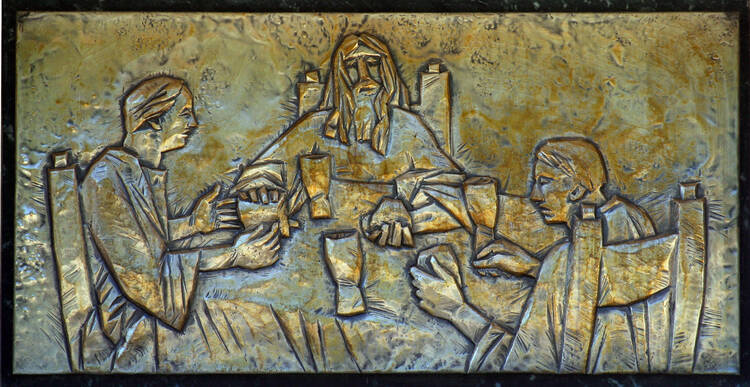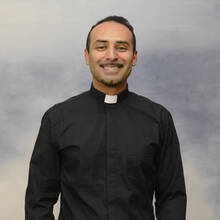On the way to Emmaus, a reflective habit pays off
Ignatius Loyola left behind certain meditative tools for anyone who wished to activate their interior life through prayer. One of these is called the “Examen.” With certain modifications to accommodate contemporary spirituality, the Examen remains a useful tool today for the reflective life. Praying the Examen allows one to reflect on the past day and ask: What did I see? What did I miss? Those who practice this meditative daily habit may recognize something familiar in the scene that unfolds in this Sunday’s Gospel passage.
Then they said to each other, “Were not our hearts burning within us while he spoke to us along the way and opened the scriptures to us? (Lk 24:32).
Where did you notice the presence of Christ in the past day or so?
Is there an area in your life that needs a nudge of redirection?
Would your spiritual life benefit from a habit of daily reflection like the Examen?
The episode of the two disciples on the way to Emmaus contains elements that symbolize a certain style of prayerful reflection. Cleopas and the anonymous disciple prayerfully discuss the things that have just happened in Jerusalem (see Lk 24:14-18). In their reflective walk, their specific actions trace a path of discipleship. To begin, their actions show a movement as they literally “walk” on the road to Emmaus. Secondly, as they walk, the two also “talk” and thoughtfully debate the things that happened in the past few days. The two actions of walking and conversing reflectively are repeated throughout today’s Gospel.
When Jesus appears suddenly to his two followers “on the way” he questions them, “What are you discussing as you walk along?” (Lk 24:17). The two appear dejected by the stranger’s ignorance and stop walking. These verses provide the tension for the whole Emmaus experience. To be “on the way” is a key phrase for Luke’s understanding of discipleship. These two disciples have failed to recognize the risen Christ in their midst. They had been walking away from Jerusalem and now have stopped completely. Each of these elements adds a level of tension to the narrative.
The two were walking in the wrong direction, but they were on the right path.
Even as the disciples appear to miss the point at several turns, this too provides a catechetical reflection for the reader. It is not clear why the two fail to recognize Jesus before them. The text reads, “Jesus himself drew near to them, but their eyes were prevented from recognizing him” (Lk 24:15-16). The reasons do not necessarily matter, but seem to be part of the experience of discipleship. For Luke, the disciples fall into the pattern of not recognizing the risen Jesus. The lack of recognition may have been from spiritual weakness, which suggests that the disciples must continue to mature as they go along the way and resist their refusal to believe. The resurrected Jesus just looks different, perhaps, or has been camouflaged by some divine power.
The scene resolves the tension by drawing on liturgical imagery. When Jesus shares a meal that has strong eucharistic elements, the two disciples quickly recognize the divine presence in their midst. Luke writes, “With that their eyes were opened and they recognized him, but he vanished from their sight” (Lk 24:31). With open eyes, they can now reflect on the day's events: their walking and talking, their burning hearts as Jesus explained the scriptures, and what they at first missed but now recognize as the presence of Christ.
The two were walking in the wrong direction, but they were on the right path. This Sunday's Gospel passage teaches Christians to keep walking and conversing within the community, to keep moving along the way with others. Cleopas is named in this scene, but the other disciple remains anonymous, as if to allow a space for all disciples afterwards that desire to be on the way with Christ. With time, and a daily habit of reflection, our own eyes might be opened and we might recognize the risen Christ in our midst.








